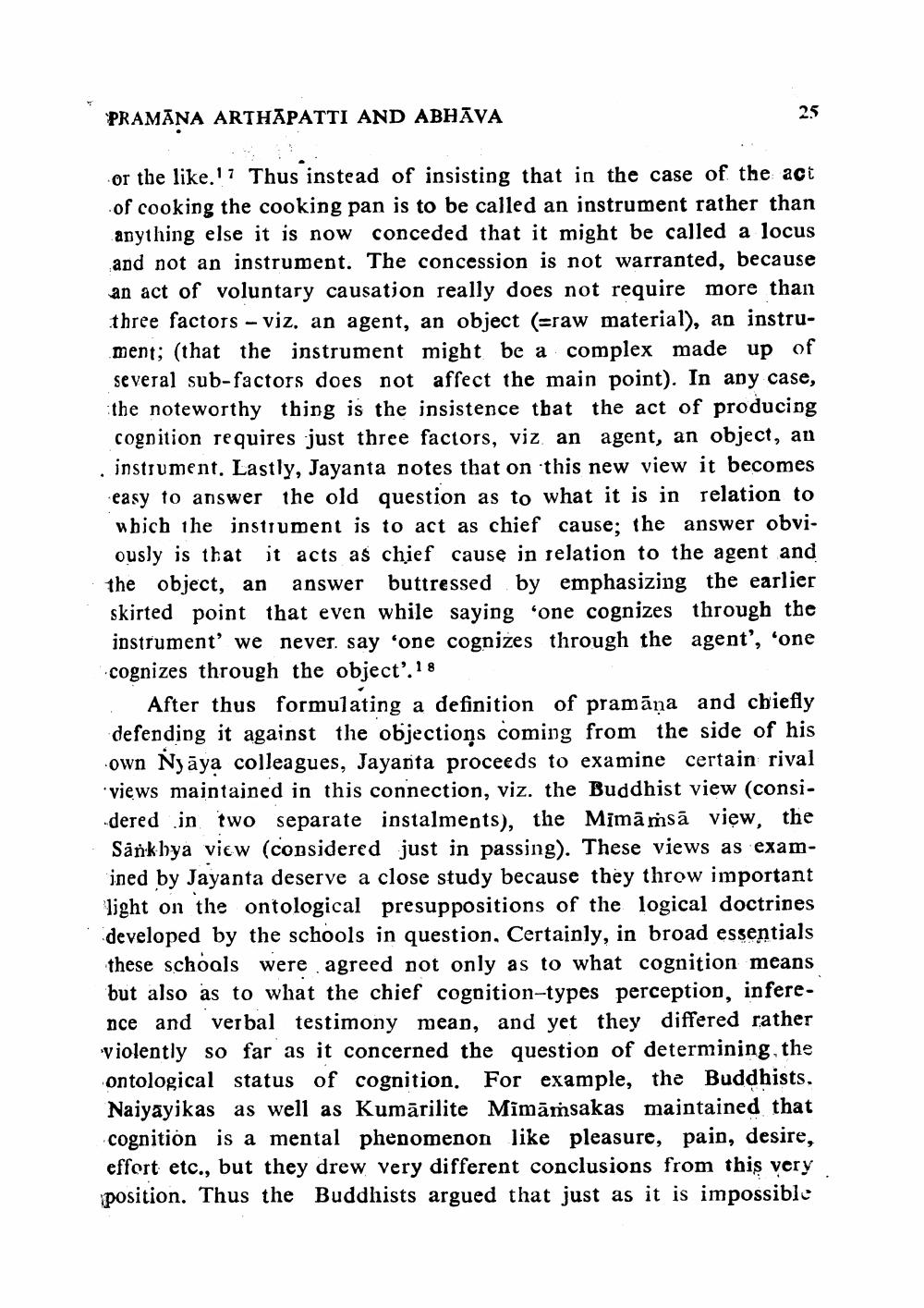________________
PRAMANA ARTHĀPATTI AND ABHĀVA
25
or the like.17 Thus instead of insisting that in the case of the act of cooking the cooking pan is to be called an instrument rather than anything else it is now conceded that it might be called a locus and not an instrument. The concession is not warranted, because an act of voluntary causation really does not require more than three factors - viz. an agent, an object (=raw material), an instrument; (that the instrument might be a complex made up of several sub-factors does not affect the main point). In any case, the noteworthy thing is the insistence that the act of producing cognition requires just three factors, viz an agent, an object, an . instrument. Lastly, Jayanta notes that on this new view it becomes easy to answer the old question as to what it is in relation to which the instrument is to act as chief cause; the answer obviously is that it acts as chief cause in relation to the agent and the object, an answer buttressed by emphasizing the earlier skirted point that even while saying 'one cognizes through the instrument' we never say 'one cognizes through the agent', 'one cognizes through the object’. 1 8
After thus formulating a definition of pramāņa and chiefly defending it against the objections coming from the side of his own Nyāya colleagues, Jayanta proceeds to examine certain rival 'views maintained in this connection, viz. the Buddhist view (considered in two separate instalments), the Mimāmsā view the Sankhya view (considered just in passing). These views as examined by Jayanta deserve a close study because they throw important light on the ontological presuppositions of the logical doctrines developed by the schools in question. Certainly, in broad essentials these schools were agreed not only as to what cognition means but also as to what the chief cognition-types perception, inference and verbal testimony mean, and yet they differed rather violently so far as it concerned the question of determining the ontological status of cognition. For example, the Buddhists, Naiyayikas as well as Kumārilite Mimāmsakas maintained that cognition is a mental phenomenon like pleasure, pain, desire, effort etc., but they drew very different conclusions from this very position. Thus the Buddhists argued that just as it is impossible




